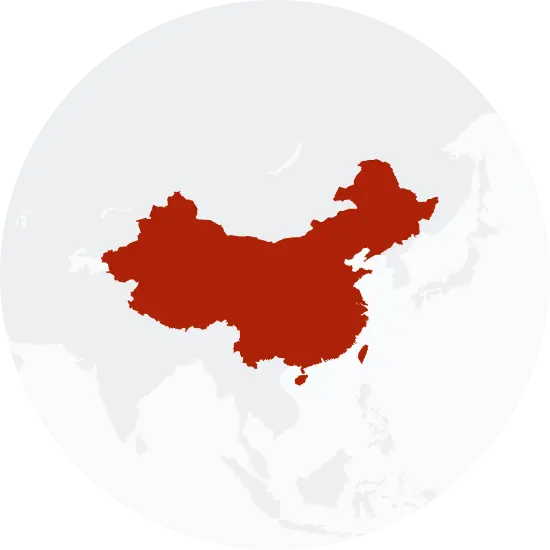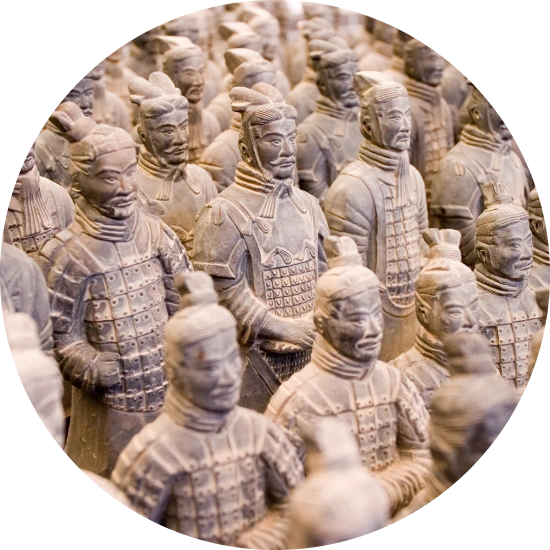Explore the Family Name Wei
How common is the last name Wei in the United States?
According to the Decennial U.S. Census, the surname Wei has seen a significant increase in popularity in the United States over the past decade. In 2000, it was the 5310th most popular surname, but by 2010, it had risen to the 3707th spot—an increase of more than 30%. The number of people with this surname also grew from 6037 to 9578 between these years, representing an impressive growth rate of nearly 59%. For every 100,000 residents in the US, the proportion of individuals named Wei increased by 45%, from 2.24 to 3.25.
| 2000 | 2010 | Change | |
|---|---|---|---|
| Rank | #5,310 | #3,707 | 30.19% |
| Count | 6,037 | 9,578 | 58.65% |
| Proportion per 100k | 2.24 | 3.25 | 45.09% |
Race and Ethnicity of people with the last name Wei
In terms of ethnic identity, the majority of people bearing the surname Wei are of Asian or Pacific Islander descent, based on the data from the Decennial U.S. Census. In 2000, 93.27% of individuals with this surname identified as Asian/Pacific Islander, and this percentage slightly increased to 94.46% by 2010. Over the same period, the proportion identifying as White fell from 3.69% to 2.89%, while those identifying as Hispanic saw a decrease from 0.50% to 0.44%. Interestingly, the data shows that some individuals with the Wei surname started identifying as Black in 2010, when previously there were none recorded in 2000. There was no change in the percentage identifying as American Indian and Alaskan Native.
| 2000 | 2010 | Change | |
|---|---|---|---|
| Asian/Pacific Islander | 93.27% | 94.46% | 1.28% |
| White | 3.69% | 2.89% | -21.68% |
| Two or More Races | 2.07% | 1.8% | -13.04% |
| Hispanic | 0.5% | 0.44% | -12% |
| Black | 0% | 0.42% | 0% |
| American Indian and Alaskan Native | 0% | 0% | 0% |
Wei ancestry composition
23andMe computes an ancestry breakdown for each customer. People may have ancestry from just one population or they may have ancestry from several populations. The most commonly-observed ancestry found in people with the surname Wei is Chinese, which comprises 85.8% of all ancestry found in people with the surname. The next two most common ancestries are Korean (3.0%) and Manchurian & Mongolian (2.6%). Additional ancestries include Chinese Dai, British & Irish, French & German, Vietnamese, and Japanese.
Ready to learn more about your ancestry? Get the most comprehensive ancestry breakdown on the market by taking our DNA test. Shop 23andMe
| ANCESTRY BREAKDOWN | COMPOSITION |
|---|---|
| Chinese | 85.8% |
| Korean | 3.0% |
| Manchurian & Mongolian | 2.6% |
| Other | 8.6% |

Possible origins of the surname Wei
Your DNA provides clues about where your recent ancestors may have lived. Having many distant relatives in the same location suggests that you may all share common ancestry there. Locations with many distant relatives can also be places where people have migrated recently, such as large cities. If a large number of individuals who share your surname have distant relatives in a specific area, it could indicate a connection between your surname and that location, stemming from either recent ancestral ties or migration.
Based on 23andMe data, people with last name Wei have recent ancestry locations in China and Taiwan.
| RECENT ANCESTRY Location | Percentage |
|---|---|
| Zhejiang, China | 35.10% |
| Guangdong, China | 35.10% |
| Jiangsu, China | 34.60% |
| Fujian, China | 34.60% |
| Shandong, China | 34.60% |
What Wei haplogroups can tell you
Haplogroups are genetic population groups that share a common ancestor on either your paternal or maternal line. These paternal and maternal haplogroups shed light on your genetic ancestry and help tell the story of your family.
The top paternal haplogroup of people with the surname Wei is O-F8, which is predominantly found among people with East Asian & Indigenous American ancestry. Haplogroup O-F8 is descended from haplogroup O-M1359. Other common haplogroups include O-F46 and O-F11, which are predominantly found among people with East Asian & Indigenous American and East Asian & Indigenous American ancestry. Other surnames with similar common haplogroups are: Zhu, Wang, Li, Sun, Zhang, Xu, Zhao, Tang, Wu, Lu.
The most common maternal haplogroups of people with Wei surname are: A4, F2, M7b. These most commonly trace back to individuals of East Asian & Indigenous American and European ancestry.
 Paternal Haplogroup Origins O-M1359
Paternal Haplogroup Origins O-M1359
Your paternal lineage may be linked to the Han Chinese
Haplogroup O-Page23 has been found in several populations of the Han Chinese ethnic group. The ancestors of the Han, called the Huaxia, lived in the upriver basin of the Yellow River 5,000-6,000 years ago. As agricultural technology improved, the Huaxia spread east and south, and became the Han Chinese. Over the last 2,000 years, there have been three major migrations of the Han southward. The first of these migrations occurred during the Jin Dynasty from 317 to 420 CE, when nearly one million people moved south. A second migration occurred during the Tang Dynasty, after the An-Shi Rebellion, between 755 and 762 CE. The last migration occurred during the Southern Song Dynasty, from 1127 to 1297 CE, when nearly 5 million people migrated southward. The Pinghua, a branch of Han in which haplogroup O2a2b1a1 is particularly common, may be descendants of indigenous minority groups that adopted Han culture during one such major migration event.
Your maternal lineage may be linked to the builders of the Terracotta Army
Qin Shi Huang, who unified warring states to become the First Emperor of China and founded the Qin Dynasty, ruled the Chinese state of Qin from 247 BC to 210 BC. In addition to his political feats, his reign is known for the massive construction projects, including his mausoleum in the Shaanxi province of central China, which began construction in 246 BC. To aid him in the afterlife, 8,000 perfectly life-like soldiers were crafted out of molds and clay and placed at guard over his tomb: his own Terracotta Army.An estimated 700,000 workers were involved in the mausoleum construction alone, and in 2003, hundreds of skeletal remains were unearthed near the mausoleum. Curious about the ethnic origins of these men, a group of Chinese scientists decided to examine their maternal haplogroups. They found that some of these workers belonged to haplogroup A, and that the group had come from a variety of places across East Asia.

What do people with the surname Wei have in common?
Spoiler alert: it's complicated. People with the same last name are usually no more genetically similar than a randomly sampled group of people from the same population. That said, people with the same surname are more likely to have similar ancestries than randomly sampled individuals. The reason is the tendency of people with similar cultural or geographical backgrounds to preferentially mate with one another. That's why people who share a surname may be more likely to share traits and tendencies in common than people within the general population. Check out the percentages below to see the prevalences of tastes, habits, and traits of people with your surname compared with prevalences among 23andMe users.
Preferences
Traits
Habits
Wellness
Are health conditions linked to the last name Wei?
The short answer is that, if there is an association between surname and health, it's usually more about your ancestry than your name. Individuals with a given surname are no more genetically similar than the general population but often have similar ancestries. The populations of people associated with those shared ancestries often have sets of genetic variations, also known as alleles, in common. Some of those alleles are associated with a greater likelihood of developing certain diseases.
Disease variant frequency by ancestry
Disease allele frequencies in populations associated with the surname Wei are shown below. Important Note: not everyone with a disease allele will develop these health condition
















